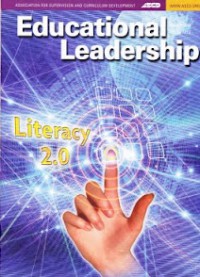Categories
Book Series & Articles
Welcome to Our Virtual Worlds
James Paul Gee
Date: Feb 28, 2009

eBook Download
Source:
Educational Leadership
March 2009 | Volume 66 | Number 6
Literacy 2.0 Pages 48-52
Abstract:
The United States is witnessing a growing student engagement crisis. With dropout rates approaching 50 percent in many urban school districts (Swanson, 2008) and recent education surveys showing that students are overwhelmingly bored in school (Bridgeland, DiIulio, & Morison, 2006; Yazzie-Mintz, 2007), we clearly need to find new ways to motivate learners.
A crucial first step in promoting student engagement is to rethink literacy for the 21st century. One path to this new learning equation comes, perhaps paradoxically, from popular culture. Many young people today play long and difficult video games that involve complex thinking and problem solving married to complex language. Although the most frequent criticism of video games is that many involve shooting and killing, a good many focus on other things. Civilization and Rise of Nations force players to think on a large scale about history, development across time, and civilizations. SimCity, The Sims, and, for very young children,Animal Crossing ask players to build and sustain cities and communities. Age of Mythology players regularly read and write about mythologies across the world, specifically from Greek, Egyptian, and Norse civilizations. Some gamers write strategy guides for the games they play—technical writing at its best—and share them over the Internet.
To view this article, click here.

